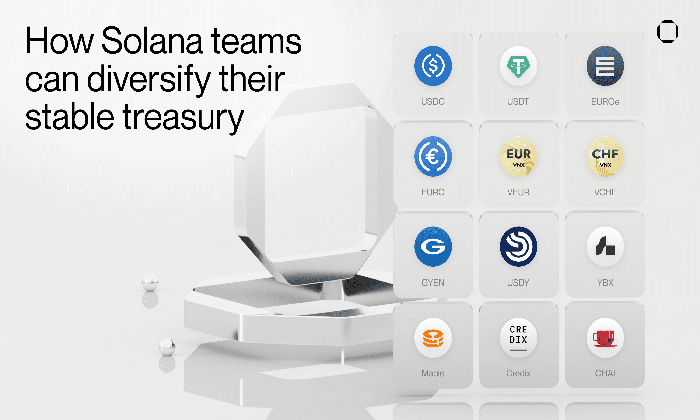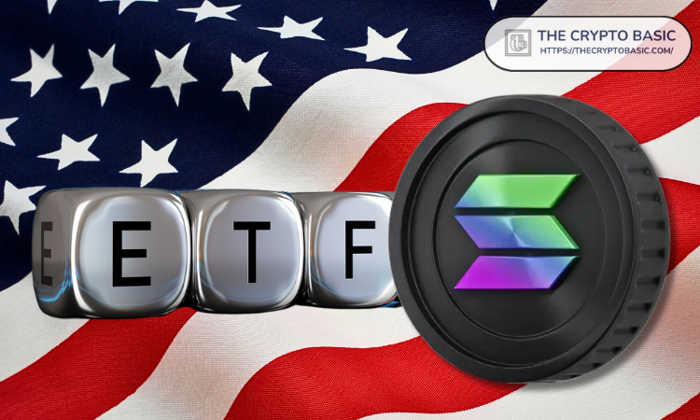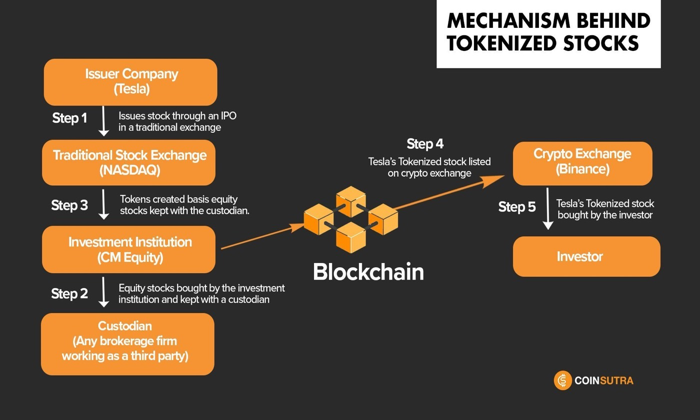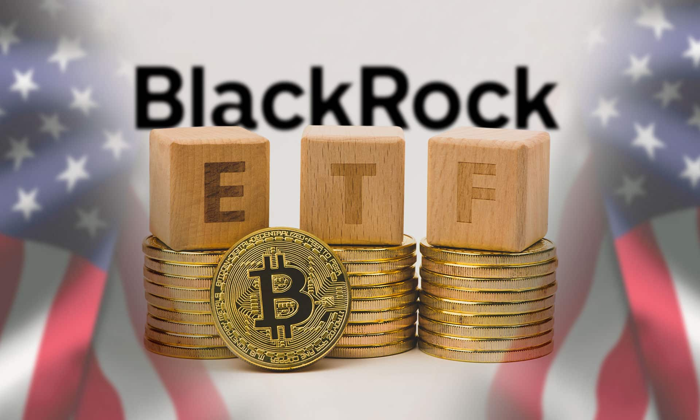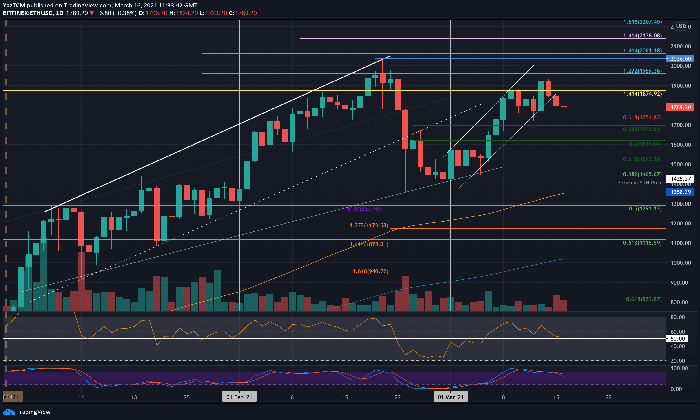The Solana treasury strategy is gaining momentum as the DeFi Development Corporation, previously known as Janover, elevates its game following a buyout orchestrated by executives from Kraken. This strategic pivot includes a significant addition of 88,164 Solana (SOL) tokens to their treasury, valued at a staggering $11.5 million, bringing their total stake in the cryptocurrency to an impressive $34.4 million. The acquisition marks a new chapter for the company, transitioning from real estate financing to focusing on cryptocurrency treasuries, particularly on staking Solana for additional yield. Since the acquisition, DeFi Development Corporation has actively participated in SOL tokens staking, indicative of their commitment to leverage the growing DeFi landscape. The surge in their stock, following this bold move, emphasizes the positive sentiment surrounding cryptocurrency investments in tech-forward companies.
In the ever-evolving world of digital currencies, the strategy for managing digital assets like Solana has become increasingly critical for companies looking to harness the potential of decentralized finance (DeFi). Following a major acquisition by a group of former Kraken executives, DeFi Development Corporation has refocused its objectives towards establishing a robust Solana reserve treasury, marking a significant shift in their operational strategy. By accumulating and staking Solana tokens, they aim not only to diversify their asset portfolio but also to generate attractive yields in an increasingly competitive landscape. With cryptocurrency treasuries becoming more prevalent, companies might find that integrating assets like SOL can enhance their financial resilience and open up new revenue streams. As seen with recent trends, engaging in staking Solana could very well place firms at the forefront of the DeFi revolution.
DeFi Development Corporation’s Strategic Shift to Cryptocurrency
DeFi Development Corporation, previously Janover, is making significant waves in the cryptocurrency landscape following a buyout orchestrated by former executives from Kraken. This strategic pivot comes at a time of increased interest in cryptocurrency treasuries among corporations, as companies look to diversify their asset portfolios. The decision to enhance their Solana treasury strategy signals a bold move toward integrating digital assets into the business model, thereby improving financial resilience. With a substantial acquisition of 88,164 Solana (SOL) tokens valued at approximately $11.5 million, DeFi Development Corporation has reinforced its commitment to Solana, raising its total stake to an impressive $34.4 million.
This shift is not just about holding digital assets but also about actively staking Solana tokens to generate yields in a competitive DeFi ecosystem. By embracing a Solana-based reserve treasury, the company is positioning itself to capitalize on the explosive growth of the DeFi sector. Staking SOL tokens will allow DeFi Development Corporation to earn rewards while contributing to the security and efficiency of the Solana blockchain. Clearly, this strategic alignment with cryptocurrency reflects broader trends in the market where tech-forward financial strategies are key to attracting investors and driving stock price growth.
The Impact of Kraken Executives Buyout on Solana Investments
The acquisition of DeFi Development Corporation by Kraken executives represents a shift in the company’s focus towards leveraging blockchain technologies. With seasoned leaders from a prominent exchange like Kraken, the firm is poised to execute its Solana treasury strategy more effectively. This buyout has not only led to a rebranding of the organization but also to increased investment in SOL tokens, which speaks volumes about the confidence these executives have in the potential of Solana as a critical player in the DeFi space. Following the announcement of the buyout on April 7, the company quickly pivoted from its earlier focus on real estate financing to the dynamic world of cryptocurrency.
As a result of this renewed focus, DeFi Development Corporation’s stock has seen substantial movement, reflecting investor optimism regarding its crypto aspirations. The company’s strategic decision to stake SOL tokens is poised to yield promising returns, especially considering the growing acceptance and adoption of staking models in the crypto market. Historical data shows that companies that adopt innovative treasury strategies, like incorporating Solana and other cryptocurrencies, can experience significant shifts in their market valuation, analogous to the rise witnessed by firms like Semler Scientific after their Bitcoin reserve treasury announcements.
The Benefits of Staking Solana Tokens for Yield Generation
Staking Solana (SOL) tokens has emerged as a lucrative opportunity for investors, especially after the Solana blockchain briefly surpassed Ethereum in staked value. With over 500,000 unique wallet holders participating in staking, the network’s total staked value reached an extraordinary $53.9 billion, yielding an impressive annualized return of 8.31%. For companies like DeFi Development Corporation, staking serves as a strategic mechanism to not only grow their asset portfolio but also to generate passive income streams. By locking up SOL tokens, they enhance the security and efficiency of the Solana network while benefitting from staking rewards.
Moreover, staking aligns with the broader trend of cryptocurrency treasuries, as more firms integrate digital asset strategies into their financial frameworks. In an era where traditional financial strategies may falter, staking offers a pathway for companies to diversify risk and tap into the potential of emerging blockchain technologies. As such, DeFi Development Corporation’s choice to stake their newly acquired SOL tokens signifies a forward-thinking approach that could yield significant dividends as the crypto market continues its rapid evolution.
Adoption of Cryptocurrency Treasuries by Corporations
The adoption of cryptocurrency treasuries has become a hallmark of innovative corporate finance strategies, with companies taking cues from successful models like Michael Saylor’s Bitcoin-centered approach. Increasingly, businesses are recognizing the competitive edge that comes with incorporating digital assets into their financial strategies. For example, the dramatic surge in share price experienced by Metaplanet due to its Bitcoin treasury underscores the potential financial impact of such decisions. Corporations, including DeFi Development Corporation, are now considering Solana and other cryptocurrencies as viable reserves to enhance financial stability and attract a more diverse investor base.
By strategically investing in cryptocurrencies like SOL, firms can hedge against market volatility while capitalizing on the burgeoning decentralized finance sector. The recent establishment of various cryptocurrency treasuries highlights a shift in corporate treasury management, where asset diversification includes both traditional and digital assets. As companies embrace these strategies, they initiate a ripple effect across industries, encouraging others to explore the potential benefits of engaging with cryptocurrencies, ultimately leading to a more inclusive and futuristic financial landscape.
Market Reactions to Cryptocurrency Treasury Strategies
The market’s reaction to the announcement of cryptocurrency treasury strategies can be quite telling, often translating into fluctuations in stock prices as investors weigh the potential of these moves. For instance, DeFi Development Corporation’s stock price surged by 12.83% shortly after unveiling its enhanced Solana treasury strategy, reflecting strong investor sentiment towards companies shifting focus to digital assets. This trend is not isolated; similar patterns have been observed across independent firms that have embraced Bitcoin or Solana in their treasury strategies, often resulting in newfound investor confidence and stock appreciation.
Stock market dynamics are inherently tied to innovative financial activities, and as organizations like DeFi Development Corporation adopt a sophisticated stance on cryptocurrency, they pave the way for sustainable growth. Investors are beginning to understand the intrinsic value of cryptocurrency treasuries, seeing them as a hedge against inflation and market downturns. As this understanding deepens, more corporations are likely to follow suit, bringing digital assets to the forefront of corporate finance, capitalizing on market opportunities, and driving stock price growth.
The Future of Solana in Corporate Treasuries
As corporate treasuries evolve, Solana stands out as a promising candidate for integration, largely due to its unique scalability and performance characteristics that appeal to enterprises. Solana’s ability to handle a high throughput of transactions at a lower cost makes it an attractive option for corporations looking to engage in DeFi strategies without the overhead associated with other blockchains. The recent acquisitions by DeFi Development Corporation underscore the growing confidence in Solana’s potential as a treasury asset. This not only reinforces its place in the financial landscape but also sets a precedent for future investments.
Looking ahead, the role of Solana in cryptocurrency treasuries is likely to expand as more firms recognize the benefits of deploying large-scale liquid assets. With DeFi Development Corporation’s proactive strategy, other organizations will likely observe and follow their lead, further embedding Solana in corporate financial frameworks. This trend would not only contribute to the liquidity of SOL tokens but could also drive up demand and usability in the broader market, solidifying Solana’s position as a key player in the corporate adoption of cryptocurrency.
Cryptocurrency Treasuries and Market Trends
The rise of cryptocurrency treasuries aligns with a broader market trend where companies are increasingly acknowledging the significance of digital assets. This trend is demonstrated by the growing number of enterprises that reveal their investments in cryptocurrencies like Bitcoin and Solana as part of their financial strategies. For DeFi Development Corporation, the integration of a Solana treasury is not merely a trend-following exercise but a calculated move to position itself at the cutting edge of financial innovation. As the acceptance of cryptocurrencies continues to rise, we can expect that stakeholders in the finance sector will increasingly demand transparency and progress towards integrating digital assets into corporate balance sheets.
Moreover, the introduction of cryptocurrency into corporate treasuries is reshaping market dynamics, as traditional financial metrics are being reassessed in light of digital asset performance. As more entities report positive outcomes from their crypto treasury strategies, the perception of cryptocurrencies as volatile assets may begin to shift towards recognition of their potential for stable growth and yield generation. This transformative viewpoint could ultimately enhance investor interest and participation in cryptocurrencies, reinforcing their legitimacy in conventional finance and promoting widespread adoption.
Comparing Traditional and Cryptocurrency Treasury Strategies
As businesses navigate their treasury management, a critical comparative analysis between traditional treasury strategies and cryptocurrency approaches unveils significant differences and advantages. Traditional treasuries have long relied on cash reserves and low-risk investments to secure liquidity, but as DeFi Development Corporation illustrates with its Solana treasury strategy, strategies now embrace the elevated risk-reward profile that cryptocurrencies provide. Companies adopting cryptocurrencies like SOL for their treasuries not only diversify their assets but also align themselves in a growing market known for its high potential returns.
The agility that comes with managing a crypto treasury allows companies to adapt quickly to changing market conditions and investor expectations. They can leverage blockchain technology to streamline transactions, enhance liquidity, and improve overall financial health. This forward-thinking mentality often reflects positively on stock performance, as seen with firms that have integrated bitcoin or solana into their portfolios. In essence, the transition from traditional to cryptocurrency treasury strategies represents a broader cultural shift within finance, encouraging innovation and resulting in more resilient business operations.
Leveraging DeFi for Corporate Growth
The decentralized finance (DeFi) landscape opens up myriad possibilities for corporate growth, fundamentally altering how companies manage finances and investments. DeFi Development Corporation’s recent moves towards enhancing its Solana treasury strategy exemplify how corporations can utilize DeFi innovations to bolster their financial frameworks. Through smart contracts and decentralized applications, corporations can enjoy greater efficiency, transparency, and accessibility compared to conventional financial systems. This embraces not only cryptocurrencies but also innovative financial products that leverage DeFi protocols for liquidity and yield generation.
As companies delve deeper into DeFi, they can explore various opportunities for growth, from automated trading strategies to treasury management solutions that optimize asset allocations. The subsequent synergies between DeFi services and traditional financial operations can lead to new business models and revenue streams, enhancing overall corporate agility. DeFi Development Corporation’s strategic investments in SOL and its intention to stake these tokens underscore a clear recognition of the importance and potential impacts of DeFi, paving the way for other enterprises to consider similar strategies as part of their growth trajectories.
Frequently Asked Questions
What is the Solana treasury strategy implemented by DeFi Development Corporation?
The Solana treasury strategy of DeFi Development Corporation focuses on accumulating a significant amount of Solana (SOL) tokens to establish a reserve treasury. Following a buyout by Kraken executives, the company plans to stake its SOL tokens to generate additional yield, enhancing its exposure to the growing DeFi ecosystem on the Solana blockchain.
How does staking Solana (SOL) tokens fit into the Solana treasury strategy?
Staking Solana (SOL) tokens is a crucial aspect of DeFi Development Corporation’s Solana treasury strategy. By staking, the company locks up its SOL tokens, contributing to the security of the Solana network while earning rewards. This generates additional yield for the treasury, which is a key part of their new focus on cryptocurrency after the acquisition.
What impact does DeFi Development Corporation’s Solana treasury strategy have on cryptocurrency treasuries?
DeFi Development Corporation’s Solana treasury strategy highlights the trend of companies adopting cryptocurrency treasuries. By integrating Solana into their asset mix, they aim to achieve capital appreciation and hedge against market volatility, similar to efforts seen with Bitcoin treasury strategies by other companies.
How much Solana (SOL) does DeFi Development Corporation hold as part of its treasury strategy?
As part of its Solana treasury strategy, DeFi Development Corporation currently holds a total of 251,842 SOL tokens, worth approximately $34.4 million. This accumulation reflects their commitment to building a robust cryptocurrency treasury following their strategic realignment after the acquisition.
Why did DeFi Development Corporation transition to a Solana-based reserve treasury?
The transition to a Solana-based reserve treasury by DeFi Development Corporation stems from a strategic shift initiated by a buyout of its former leadership by Kraken executives. This move aims to capitalize on the growing DeFi landscape and leverage the performance of SOL tokens through staking and investment diversification.
What are the benefits of holding a Solana treasury for companies like DeFi Development Corporation?
Holding a Solana treasury provides companies like DeFi Development Corporation with diversification of assets, potential capital gains, and yields from staking. As the Solana ecosystem continues to grow, the treasury can enhance overall company value and appeal to investors looking for exposure to innovative digital assets.
What trends are emerging in cryptocurrency treasuries with respect to Solana and other cryptocurrencies?
Emerging trends in cryptocurrency treasuries include companies diversifying beyond Bitcoin to include assets like Solana. DeFi Development Corporation’s Solana treasury strategy exemplifies this trend, reflecting a broader movement among firms to secure digital assets for financial stability and growth in the evolving crypto landscape.
| Key Point | Details |
|---|---|
| DeFi Development Corporation’s former identity | Previously known as Janover, focusing on real estate financing before shifting to cryptocurrency. |
| Acquisition details | Acquired by former Kraken executives, leading to a strategic shift towards cryptocurrency. |
| Recent treasury addition | Added 88,164 SOL to its treasury on April 22, valuing at $11.5 million, total now $34.4 million. |
| Current holdings | Total holding of DeFi Development Corporation: 251,842 SOL tokens. |
| Staking plan | Plans to stake SOL tokens to generate yield and benefits from Solana’s staking rewards. |
| Market impact | Shares of DeFi Development Corporation rose by 12.83% following the treasury news, indicating market positivity. |
| Solana’s staking success | Surpassed Ethereum in staked value with $53.9 billion and 8.31% annual yield. |
Summary
The Solana treasury strategy adopted by DeFi Development Corporation signifies a pivotal shift towards cryptocurrency investment, enhancing their overall asset management. Following its recent buyout and rebranding, the company is now aggressively acquiring Solana tokens. This move aligns with broader market trends where companies are integrating digital assets into their portfolios to boost share value, as evidenced by their strong stock performance after treasury announcements. As interest in staking grows, DeFi Development Corporation’s strategy is well-positioned to capitalize on the benefits of Solana’s thriving ecosystem.
The Solana treasury strategy is gaining traction as DeFi Development Corporation, formerly known as Janover, embarks on a bold new direction following the acquisition by Kraken executives. With an exciting announcement on April 22, the company revealed the addition of over 88,164 Solana (SOL) to its treasury, valued at an impressive $11.5 million. This move elevates its total stake in Solana to approximately $34.4 million, as the firm pivots its focus towards cryptocurrency treasuries. Prior to this landmark change, Janover was predominantly involved in real estate financing, but now, with the backing of former Kraken leadership, they are staking SOL tokens to generate additional yield. The strategic rebranding to a Solana-based reserve treasury marks a significant evolution in DeFi Development Corporation’s approach, aligning with broader trends in digital asset strategies across the market.
As the landscape of digital finance evolves, innovative fiscal strategies are emerging, exemplified by the recent developments within DeFi Development Corporation. Following a notable buyout involving former Kraken executives, the firm’s shift toward a cryptocurrency-centric model highlights the growing importance of holding digital assets like Solana. The decision to build a robust reserve of SOL tokens not only signifies a commitment to DeFi principles but also reflects a broader trend in the industry towards integrating crypto holdings into corporate treasuries. This strategic focus on SOL staking aligns with other companies actively diversifying their portfolios through cryptocurrency investments. In doing so, DeFi Development Corporation embraces a future where digital assets play a crucial role in financial growth and stability.
